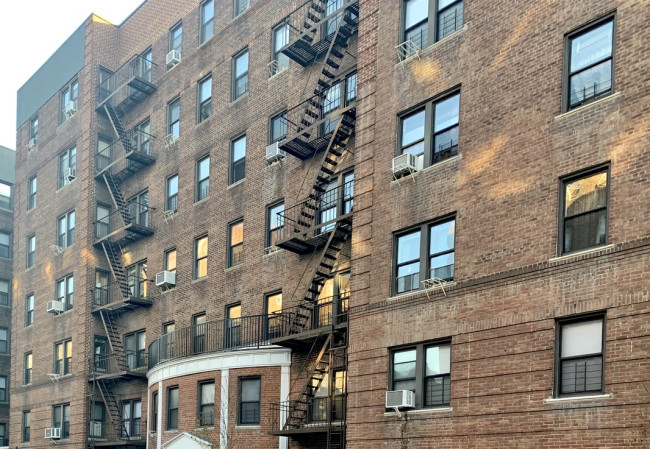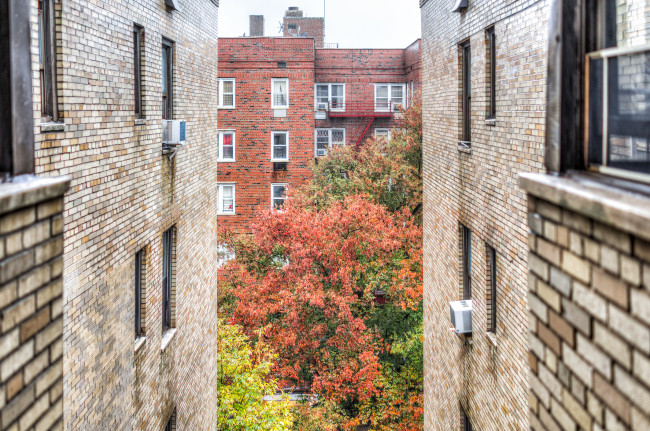I filed a rent overcharge complaint two years ago. How do I get DHCR to respond?
- Start with an informal approach by sending a letter to DHCR and attach your housing court petition
- Another option is for your attorney to ask a housing court judge to write a letter to DHCR
- If these fail, you or your attorney can file an Article 78 proceeding to compel DHCR to respond

More renters are filing what's known as an Article 78 proceeding in light of delays in response time from the Division of Housing and Community Renewal.
iStock
I live in an apartment that I believe should be rent-stabilized, according to the unit’s rent history. I submitted paperwork for an overcharge complaint to DHCR, but it's been two years and no word! My landlord has been increasing my rent in big jumps, and I won't be able to pay this next round come January. Is there any way to put pressure on DHCR?
Filing a rent overcharge claim with New York State’s Division of Housing and Community Renewal can indeed take a long time to resolve. Altagracia Pierre-Outerbridge, a tenant attorney and founder of Outerbridge Law (and a Brick sponsor) said these cases can take as long as three years to resolve, but if successful, the money you save on rent makes it worthwhile.
There are four things you can do to try to get DHCR to respond faster. The first course of action is the informal one you have already taken: Submitting a letter to DHCR.
“In these cases, we write a letter saying our client is facing eviction because of the time you are taking to respond,” Outerbridge said. It’s important to attach a copy of your housing court petition to this letter, she said.
[Editor's note: Realty Bites tackles your NYC rental questions. Have a query for our experts? Drop us an email. We respect all requests for anonymity.]
Next you should consider sending a letter to the Woody Pascal, deputy commissioner of DHCR, or you can cc him on your letter to DHCR, which can be mailed to DCHR’s Enforcement Unit at Gertz Plaza, 92-31 Union Hall Street, 6th floor, Jamaica, New York 11433.
The third option is for your attorney to ask a housing court judge to write a letter to DHCR. A request from an attorney will carry more weight—and a letter from a judge to DHCR will pretty much guarantee a response, she said.
Compelling DHCR to respond
Your fourth option is to file what’s called an Article 78 proceeding. It’s a route more renters are taking these days as a result of an increase in delays with DHCR, said real estate attorney Eileen O’Toole, a solo practitioner who works with NYC landlords and tenants.
This is “used to appeal a decision by a state agency or compel them to make one because the agency is failing its duty by law to perform its responsibility,” O’Toole said. Landlords file Article 78 petitions as well.
It’s best to turn to this after a period of time, for example, if you have a case pending for at least a year. While you don’t necessarily need an attorney to file this petition, having one will make it much easier because there are multiple steps involved. Several law firms have posted instructional videos to YouTube on how to do this.
How to file an Article 78 proceeding
You must file this petition in New York State Supreme Court, and it can be done in person in your home borough or online, via NYSCEF, the State Supreme Court electronic filing system. Three documents are required, the first two are a notice of petition and petition against DHCR, which includes a history of the case, how long it has been pending, and a date by which you need DHCR to act.
“You are essentially seeking to set a deadline,” O’Toole said. But she cautioned against making the requested time frame too narrow, even if you have been waiting a long time already. “Some cases do require a lot of back and forth between DHCR and the parties before making a decision,” she said.
You also need to file a Request for Judicial Intervention. That’s what brings DHCR to court.
Filing fees will run close to $300. The court may waive the fee for low-income individuals. After you file, you will get an index number assigned to the case. Then you need to print out copies of the notice, petition, and the RJI and serve both to DHCR's main office at 641 Lexington Ave. and the Attorney General’s office. Keep an additional copy for your own records.
You’re not done yet. Next you need to file with the court an affidavit that says you served DHCR and the AG. At this point, the clock starts and an attorney from DHCR’s litigation office will contact you.
Usually DHCR will offer to decide a case within a specific time frame, although it may be longer than the requested time frame, O’Toole said.
Occasionally DHCR will oppose your petition and say they are doing what is required by law and they cannot take your case out of order. If you reach an agreement, you and DHCR will sign a settlement stipulation to submit to the court. If DHCR opposes your petition, you will have to go before the court to argue that your request for expedited processing should be granted.
“But generally, DHCR will agree to settle in a time period. That doesn’t mean they will necessarily decide for or against you,” she said. She’s been involved in cases where DHCR agreed to respond in 90 or 120 days.
What happens if you stop paying rent
Be aware that if you stop paying your disputed rent while you are pursuing an overcharge claim with DHCR, you need to take a specific course of action, Outerbridge said.
That’s because a landlord may pursue a non-payment case in housing court against you and you may not have time to defend yourself, since you do not yet have a ruling from DHCR.
In that case you have to act to defend your rights, Outerbridge said.
Your attorney can file a claim in supreme court seeking a stay of the landlord’s suit. The supreme court judge may reject the claim and tell you to go to housing court, or they may issue a ruling.
“A landlord-tenant attorney will try to bring the claim to housing court so both cases can be heard together,” she said. “This is usually the most efficient way to deal with this, however, there are pros and cons to each strategy.
“DHCR is the ultimate expert on rent overcharges, though the agency does take longer. A housing court case is a summary proceeding, which means it is quick, so you may lose leverage here too with the housing court case going too fast for you to really delve into the overcharge,” she added.
One last tip: It is a good idea to set aside money for rent in case you lose your dispute. Outerbridge recommended opening a savings account and depositing your rent on the first of the month.
You Might Also Like



























